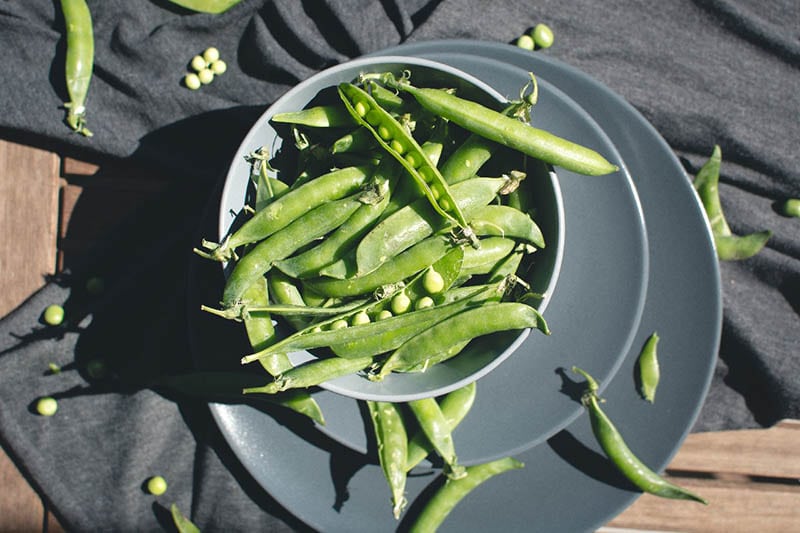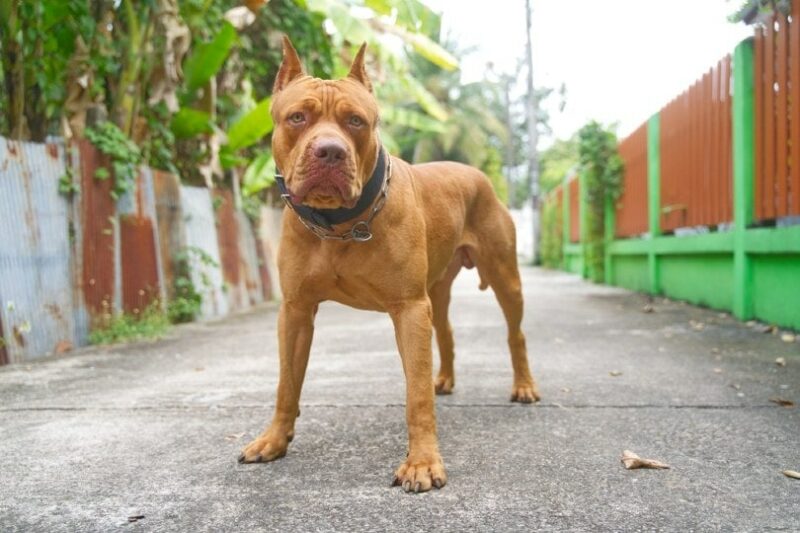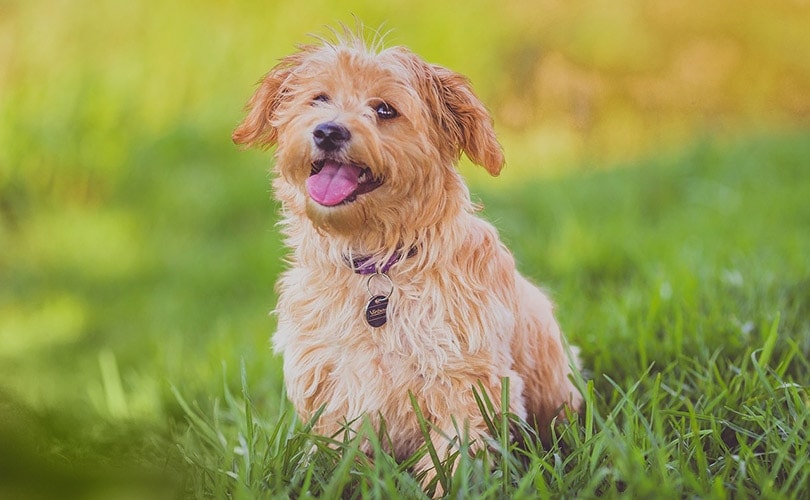Can Dogs Eat Scallions? Know if It Is Safe!

Updated on
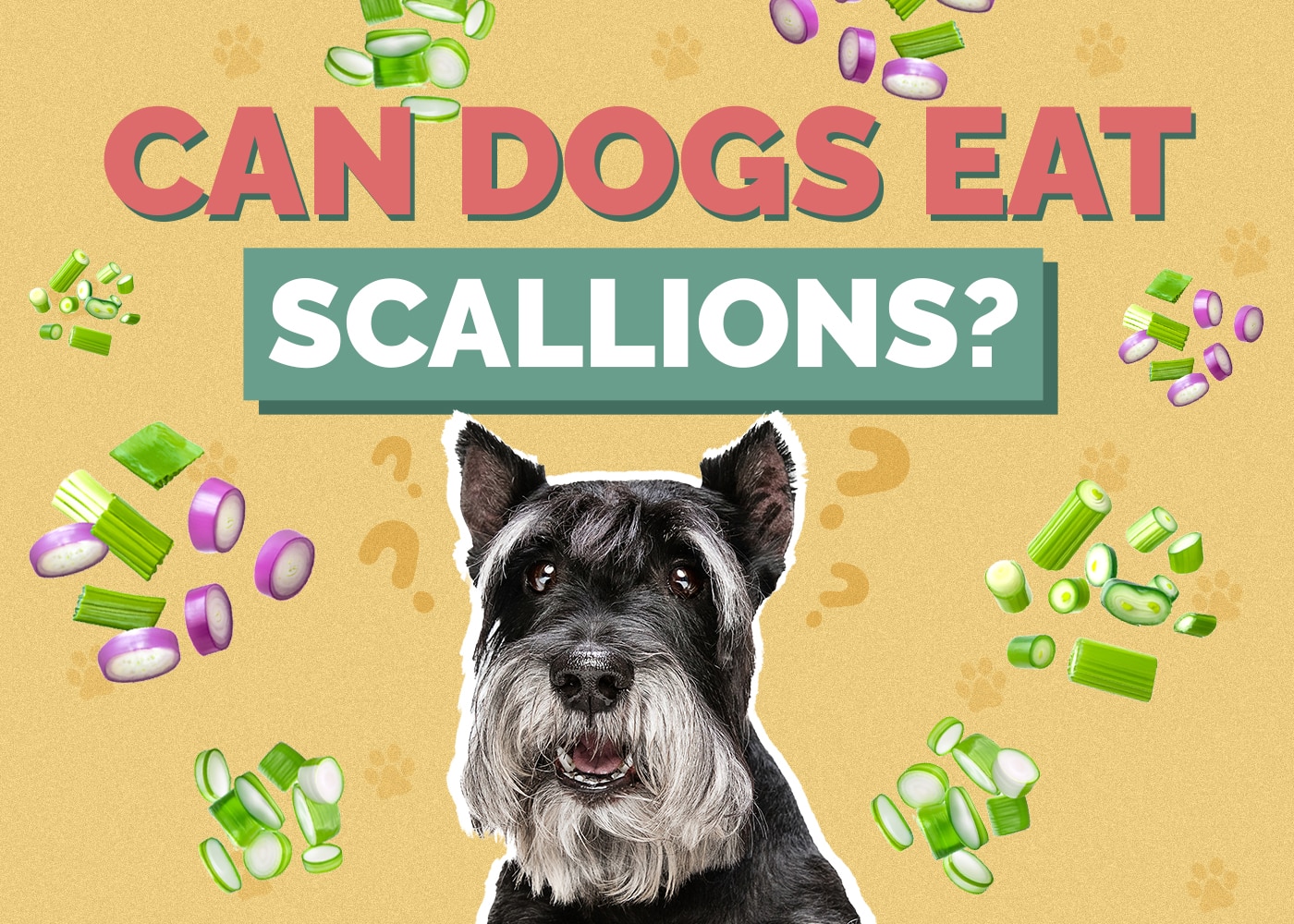
Dogs are known for being very curious animals—liable to be hungry almost all of the time—and given these two factors, it makes sense that they are generally eager to devour anything they can get their paws on. But should dogs eat scallions? Scallions, also known as green onions, are a member of the onion family. As far as human palates are concerned, they have a subtle flavor that is great for adding depth to certain dishes. While some may think scallions are safe for dogs, the truth is that dogs should never eat scallions due to how dangerous they are for canines.
Scallions contain high levels of sulfur-containing compounds, which are toxic to dogs. Like other members of the onion family, such as garlic and shallots, scallions contain disulfide and thiosulfate1, ingredients that cause red blood cell breakdown and cause them serious issues if eaten in sufficient quantities. In this article, we will look at the mechanism of toxicity, what amount of ingested scallion is cause for concern, and what to do if your dog has eaten scallions.
What Other Plants are Members of the Allium Family?
The allium family is a diverse group of plants comprising over 700 species of flowering plants. These plants are mostly edible and used as culinary herbs or vegetables. Alongside scallions, this family also includes onions, garlic, chives, and leeks. Alliums are also widely cultivated for their ornamental flowers in shades of pink, purple, and white. Plants in the allium family have a long history of being cultivated for their culinary uses, some dating back thousands of years. Used in many dishes to give food flavor, texture, and aroma, these plants aren’t just delicious—they also have significant health benefits for humans due to their high content of sulfur-containing compounds like allicin and quercetin. These compounds are thought to reduce inflammation, lower blood pressure levels, boost immunity, and even help protect against certain cancers. Unfortunately, they have very different effects on dogs.
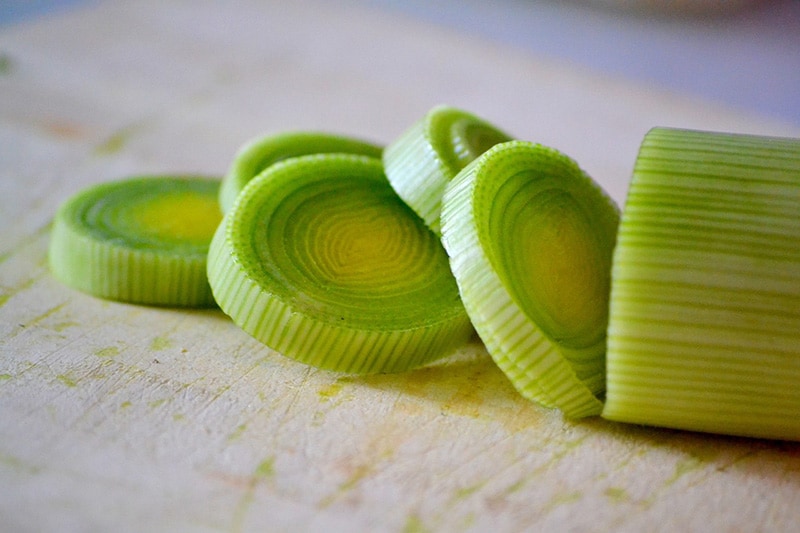
What Do Alliums Do to Dogs?
Members of the onion or allium family—such as scallions—are found in many dishes, but it is important to be aware of their danger to dogs. The consumption of any member of the allium family is commonly linked to allium toxicosis. Dogs may be potentially poisoned by consuming raw or cooked plant matter—but also by ingesting dietary supplements, dried garlic and onion powder normally used for cooking. This is because if ingested in sufficient amounts compounds such as disulfide and thiosulphate, which are found in alliums, are toxic to dogs.
Disulfide and thiosulphate cause oxidative damage to red blood cells, causing them to be broken down prematurely and this leads to anemia. If left untreated, worsening anemia will lead to life threatening health problems.
How Much Green Onion is Toxic to Dogs?
Poisoning can be caused either when a dog consumes a large number of scallions in one sitting—or when they consume a small amount of green onion over a long period of time. It has been shown that even small amounts of onion can result in clinically significant blood-related changes in dogs. When dogs ingest more than 0.5% of their total body weight in onions at once, poisoning is almost inevitable. If your 20kg dog manages to eat several green onions at once—100g in one go, or spread apart over a few days—then damage to their red blood cells and hemolytic anemia will occur.
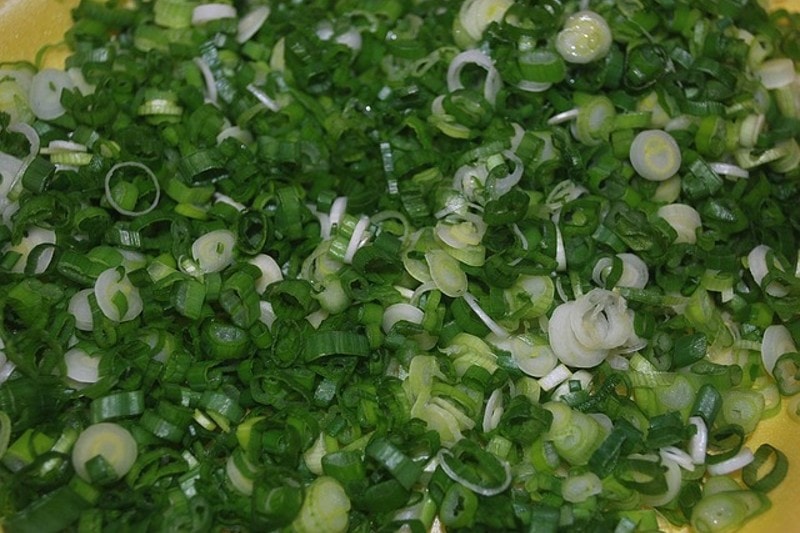
Are Some Dogs More Vulnerable Than Others?
In order to determine how much onion would be dangerous for your dog, it is necessary to take into account their weight and a few other factors that may make them more vulnerable. Dogs can suffer significant health problems from onion poisoning, and certain breeds and individuals may be more susceptible to the toxic effects of green onions and other alliums than other types of dogs. It should be noted that all dogs are at risk of onion poisoning if they ingest enough onions, but there are some dogs that may be more sensitive to the toxic compounds in onions than others.
- Breed: Dog breeds of Japanese origin, such as Akitas and Shiba Inus, have been found to be more prone to allium poisoning when it comes to consuming smaller amounts of onions, so they’re more likely to get sick than other breeds of dog.
- Existing illnesses: As a result of their compromised health status, dogs who are suffering from concurrent diseases, such as diabetes, liver disease, or anemia, may also be more susceptible to onion poisonings. Since they are already unwell, it is likely that these dogs will have a harder time metabolizing and eliminating the toxic compounds found in scallions, leading to a more severe illness as a result.
- Medicine: Some medications may also make dogs more susceptible to scallion poisoning. There are some medications that can affect a dog’s ability to metabolize and eliminate the toxic compounds found in onions, increasing the risk of a dog becoming poisoned by onions.
- Senior dogs: With aging, dogs’ metabolisms and organ functions may change, making them more susceptible to scallion poisoning. More elderly dogs could more easily become poisoned by plants like scallions, onions, leeks, and garlic as they gradually lose their ability to metabolize and eliminate toxins in old age. Additionally, older dogs are more likely to suffer from some of the health conditions listed above—such as kidney disease and liver disease—that can adversely affect their ability to metabolize toxins and eliminate them.
- Puppies: Since puppies are smaller and have developing organ systems, they may be more susceptible to green onion poisoning. The toxin compounds contained in alliums are more potent in smaller animals—so puppies will likely have a harder time metabolizing and eliminating the toxins caused by these toxins due to their biological immaturity.
Risk by Size of Dog
The size and weight of your dog, as well as the number of green onions ingested, can help determine how much of this vegetable is dangerous for your dog. Please note that these estimates are not applicable to all dogs and should be regarded as a general guide. If you suspect your dog ate green onions at or near the quantities listed below, seek veterinary care immediately. To completely minimize the risk of serious complications, seek veterinary care as soon as possible if you suspect that your dog has ingested any quantity of scallions.
One bunch of green onions generally contains at least seven or eight scallion bulbs with their stems and generally has an overall weight of under 5 oz. This puts the weight of each green onion at a maximum weight of around .75 oz. The weight of a cup of chopped green onion is 3.5 oz, while that of a cup of sliced green onion is 2 oz.
| Breed Size | Dog’s Weight | Number of Scallion Bulbs | Quantity of Chopped Scallion | Quantity of Sliced Scallion |
| Small | 10lbs | One | 1/5 cup | 1/3 cup |
| Medium | 30lbs | Three | 3/5 cup | 1 cup |
| Large | 60lbs | Six | 1 1/5 cup | 2 cups |
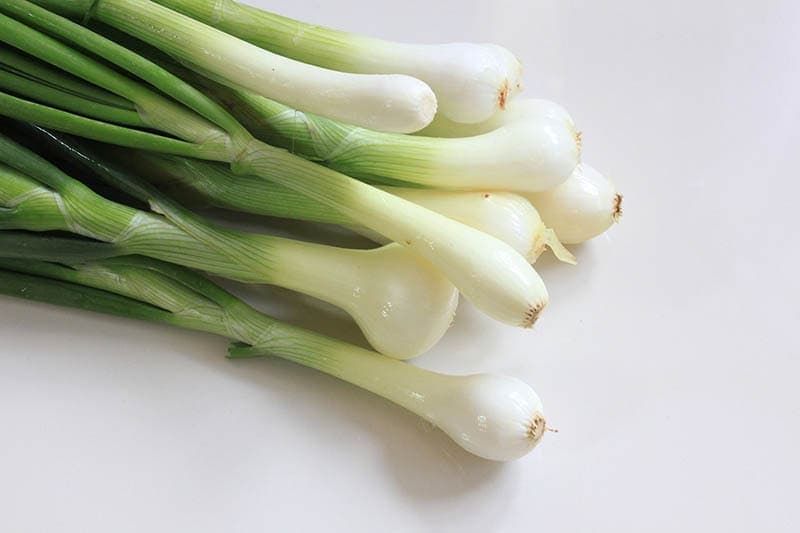
What Are the Signs of Scallion Poisoning in Dogs?
The very best thing to do if your dog has ingested scallions is to seek veterinary care as soon as possible. Ingestion of alliums can cause serious health problems in dogs due to the toxic compounds in them. It is likely that the clinical signs of green onion poisoning in dogs will appear within a day or two following ingestion. It is possible for these symptoms to include vomiting, diarrhea, loss of appetite, abdominal pain, pale gums, lethargy or weakness, stumbling or losing their balance, exercise intolerance, changes in urine color or output, increased respiratory rate, or an increase in heart rate.
Some dogs may not show symptoms of illness until several days after ingestion, so it’s important to note that these signs may not always be present. Even if your dog exhibits no signs of illness, you should seek veterinary care if you suspect your dog has ingested scallions, as early treatment can minimize the risk of serious complications.
Conclusion
In conclusion, you should never intentionally feed your dog scallions or any other member of the onion family. All members of the allium family can be quite harmful to canines. Scallions contain compounds that cause anemia in dogs. Therefore, if you want to ensure your dog’s health and safety, abstain from feeding them scallions or any other member of the onion family. If your dog has eaten scallions, the safest thing to do is contact the vet.



